When it comes to major event planning, it cannot be stressed enough how important it is to have the proper audio-visual components – from adequate lighting and sound system elements to appropriate Wi-Fi sourcing, creating an audio-visual checklist is essential to ensure a seamless – and successful – event. Understanding the technology and the terminology entailed is just as crucial – whether you’re a part-time planner or a Certified Meeting Planner (CMP), it’s important to have an intermediate familiarity with the protocols that AV planning entails. From coordinating a corporate meeting for 20 attendees or an off-site event for hundreds, knowing what is entailed allows for ease of communication between clients, presenters, venue staff, IT support teams, and the AV technicians. In order to avoid errors, miscommunication, and unnecessary expenditures, careful planning while remaining proactive throughout each phase warrants an event will run smoothly and within budget. Read on for a comprehensive AV checklist for your next event.
Audio Visual Checklist 101: Must-Haves For Events Of Any Size
No matter what the size or reason for your event, meeting, or conference, an intermediate understanding of the technology you’re going to need to rent is helpful during the initial planning phases. In addition to the basics (such as figuring out how attendees will connect to the internet), you’ll also want to identify a number of specific must-haves for your event. If feasible, ask your AV Team if they can go to the site prior to the event, and be sure to have your audio-visual checklist of questions handy. Identifying this fundamental information at the onset of your event will safeguard its success – from boardroom conception to the final keynote speaker’s presentation.
Some essential questions/talking points for your AV checklist should include:
1) AV Technicians
Audio Visual (AV) technicians are certified professionals who are trained to run the equipment used at professional events, meetings, and functions of all sizes. Developing a rapport with your AV tech at the beginning of your project will establish clear communication on both ends – besides determining the planning phases of your specific event, keeping an open dialogue throughout the process will guarantee your needs are met while helping to avoid any errors or oversights along the way.
Here are a few strategic points to keep in mind when speaking with your AV tech team:
- Will the AV team be available for a walk-through? It’s important to check with your AV team well in advance of your event – see if they’re available to do a walk-through (at the very least) a day or two before your event, particularly if you have any questions or concerns about equipment or other related issues.
- Will the AV technicians stay on-site? Ask your AV techs if they’ll be remaining on site after your event starts, and if so, how many will be in attendance/how long. Determining this info early on can be very helpful the day of, especially if you require their expertise for any unforeseen technical assistance or specific support.
- What type of equipment will be available? Be sure to ask your AV team what sort of essential backup equipment will be available on-site in the event that something malfunctions (for example, extra cables and adapters for a microphone or laptop). Request an equipment list outlining all required gear (and backup equipment), and be certain to have a tech’s cell number or another way to reach staff if they aren’t planning on remaining on-site for the duration of the event.
2) Meeting Room Calculations
Knowing the size, dimensions, acoustics, lighting and other basic information about the room, space, or venue the event will be held is an important factor when determining your AV needs. Your Audio Visual team will be able to help you plan accordingly. Below, are a couple of central items to consider:
- Is there enough room for the AV? Check with your AV Team to ensure there’s adequate space for the soundboards, mixers, and/or lighting.
- Can the room handle the acoustics? Be sure that the space the event will be held in is acoustically feasible, and that an appropriately designed sound system is included.
- Has the space been reserved for an adequate amount of time? Make certain that at least a 24-hour hold has been secured with the space before/after your event to ensure adequate time for set-up and strike.
3) Equipment For Presentations:
While it’s not necessary for event planners to be experts in audio visual for events, having a working knowledge of the required gear and creating a bullet-pointed list will help with planning and executing the event.
Here are some key questions to discuss with your AV team:
- What type of presentation equipment will your speakers need? Identify what sort of equipment is needed by your speakers at the very onset of event planning. To further streamline the process, ask speakers to send over their presentation so it can be uploaded to computers/laptops/tablets, etc. in advance for testing.
- How big do the screen(s)/monitor(s) need to be? Determine how large the monitor rental and/or screen needs to be for the attendees so that everyone can easily view the presentation. One of the most effective ways to do so: sit in the back row (for auditorium-style events) or the seating in the meeting room/lecture hall furthest from the screen to ensure the font is legible from a distance and that the screen is properly positioned. When in doubt, your AV Team can advise you on proper sizing and placement.
- How bright is/are the projector(s)? Check with the AV tech to ensure the projector has an adequate amount of lumens to certify the material is being displayed clearly. Keep in mind the time of day, whether the room has windows, and how bright the room should be for your attendee’s comfort; all of these factors in determining the appropriate projector for the job.
4) Wi-Fi Requirements:
Figuring out how your guests will connect to the Internet – and what speeds are required – should be spearheaded at the very onset of any major event. Therefore, determining event Wi-Fi requirements is a critical element that should be addressed during your initial AV team consultation. Be sure to ask these vital questions:
- Should I use in-house Wi-Fi or an outside AV provider? Having WiFi for events is an absolute must but not all Wi-Fi is created equal. Using the venue’s in-house Wi-Fi can often be a major unexpected charge for a network that is often insufficient for large events. Make sure to discuss costs and limitations upfront.
- How much bandwidth is available? Be sure to ask how much bandwidth will be available to your attendees.
- How much bandwidth is required? It’s also important to confirm how much bandwidth is required for your event – if you’re unsure, try using our Bandwidth Calculator or an IT specialist can verify.
- Dedicated or shared? Find out whether or not the Wi-Fi is dedicated or shared within the venue.
- Where are access points? Identifying where the access points are throughout your meeting space is critical – for example, if you’re going to rent tablets, their weak antennas require close proximity to the access points in order to have consistent Wi-Fi service.
5) Lighting Requirements:
Determining the event lighting in the space is another important element to consider during the planning phases. For example, is there any natural light entering the room – and if so, will it affect your presentation?
Here are a few other light-related items to discuss with your AV team:
- Will the event require special lighting? Some events may require ‘specialty’ lighting – for example, spotlights to enhance the visibility of the keynote speaker, strategic lighting to highlight sponsor information,or even ambient lighting to set the mood and tone of your event.
- Is specialty lighting available through your AV provider or the venue itself? When meeting with your AV team, check to see if they’ll be providing all of the necessary elements for the specialty lighting that you’ve decided upon, or if the venue itself offers it (or a combination of both).
6) Microphone Requirements:
Although it’s one of the most frequently overlooked items on an event checklist, determining your microphone requirements from the start is imperative to the overall success of any meeting or corporate event, large or small. Be certain to touch base with each of your presenters and speakers to see what type of microphone needs they have, if any. Some decisive factors to consider include:
- Will your speakers be stationary or moving around? Knowing this info in advance will help to decide what type of mics you’ll need – wired or wireless, and with or without a microphone stand.
- Will there be a lectern? If a lectern will be utilized, confirm with the AV team if the microphone will be attached to it or not. Be certain that there is ample mic cord length in the event that the speaker decides to remove the mic and use as a hand-held; this is one of many reasons why it’s important to contact all speakers during the planning phase to confirm their mic usage/personal style for speech and presentation delivery.
- Will lavalier-style mics be used? A lavalier (also known as a lav, lapel mic, clip mic, and body mic) is a small microphone that is typically clipped to a speaker’s shirt lapel, collar, etc. so that they may move around freely (and hands-free). Knowing whether or not your speakers will be using this style in advance is helpful since you’ll want to remind them to wear appropriate clothing for ease of attachment.
- Will the microphones connect to the venue’s existing sound system? You’ll also want to speak with your AV team to determine if the mics will connect to your venue’s sound system, or if renting a portable sound system is required. This should also be discussed early on in order to secure all of the necessary audio equipment for your event.
- Will there be a mic-check? Although it may not be a concert, a corporate event or business meeting still requires that the microphones are carefully checked over the venue’s (or rented) sound system to ensure that there are no ‘hot’ mics – i.e., high-pitched sounds that occur when there is too much feedback – or other discernible audio issues. If possible, ask the AV team if you can arrive early to check all of the mics before the event begins.
Although there are many different facets to coordinate when orchestrating a meeting or special event, with careful planning, your audio-visual services needs can be met – and with the assistance of the experts at Vario, they’ll not only be reached but exceeded. Creating a detailed checklist will not only allow you to discuss plans with your Audio Visual team but troubleshoot any unforeseen snags that may arise before, during, or after the event. Remain proactive in your event planning by keeping the lines of communication open with your AV team, and be sure to gather as much information from your keynote speakers and other presenters to ensure things run smoothly. In the end, your staff, patrons, volunteers, and clients will be appreciative of your stellar coordination efforts – and most importantly, a memorable and seamless event. Searching for a San Diego audio visual company for your next event? Don’t hesitate to connect with us to discuss how we can help support you and your event.







